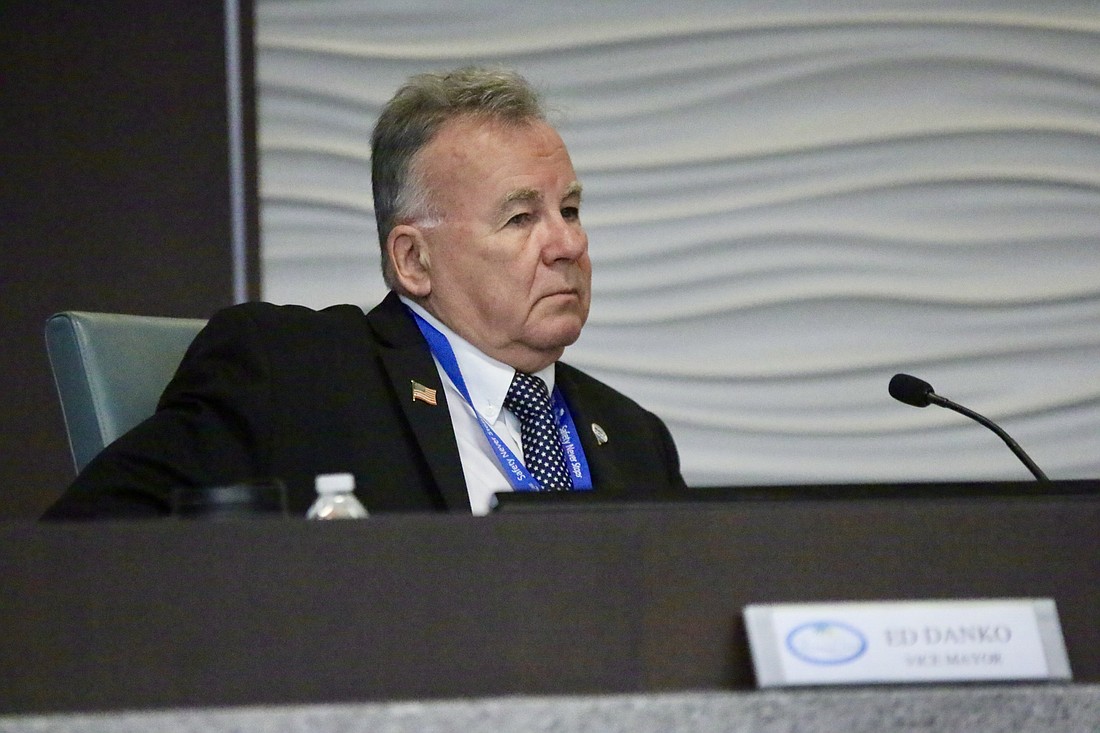- April 8, 2025
Your free article limit has been reached this month.
Subscribe now for unlimited digital access to our award-winning local news.

The Palm Coast City Council reviewed a contract and timeline for the saltwater canal dredging study.
The council heard from city staff and representatives of Taylor Engineering, Inc., the consultation firm that will be handling the study and, potentially, the dredge work, at the Tuesday, Jan. 10 workshop meeting. The firm has more than 30 years of experience in water-related issues, according to their website.
Councilman Ed Danko has been vocal in his support of a saltwater canal survey and said he was excited to see representatives from the firm at Tuesday's meeting.
"I started pushing for this over a year and a half ago," Danko said.
Taylor Engineering was one of three proposals submitted last spring to conduct the survey. The city committed to the firm in May of 2022.
Deputy Director of Stormwater & Engineering Don Schrager presented Taylor Engineering's three phase approach to the project.
Phase one would be the initial assessment, taking from six to seven months to complete. Phase two is design and permitting, estimated to take 18 to 24 months, followed by the construction phase three.
"Once we're at a base level, [then] we can talk about establishing ongoing maintenance," Schrager said.
"Once we're at a base level, [then] we can talk about establishing ongoing maintenance." — Deputy Director of Stormwater & Engineering Don Schrager
The city budgeted $180,000 in the capital projects fund for the saltwater canal study, and Taylor Engineering's phase one is estimated to cost $175,952, leaving a surplus of just over $4,000, the report said.
In phase one, Taylor Engineering will research existing information and permitting requirements for dredging. Since the canals were designed and built in the 70s and 80s, Schrager said, the firm will need to research what requirements they might need to meet.
“The meat of the whole phase one is data collection,” Schrager said.
Their services, according Schrager's presentation, will also include sampling material from the floor and conducting a bathymetric survey of the existing canals.
A bathymetric survey will measure the actual depth of the canals floor, as well as map out the canal floor.
That data will will help teams decide priority areas for dredging, phasing recommendations and even where to dispose of what is dredged.
"What we dig out of there," Schrager said, "determines how we stockpile, it where we dispose of it — or even if we can repurpose it.”
The firm will also search out potential sources of funding for the project, design a schedule and then present a final report to city council.
Terrance Cake and Ken Craig, both with Taylor Engineering, will be in charge of the project. Craig said they have a lot of experience working on similar projects, from ones on a much smaller to larger scale.
"I'm excited to see what you guys come up with," Danko said.
Danko did ask if part of the study would include a plan for future maintenance, whether that is occasional dredging or a permanent system for the city.
"I just don't want to see us in this situation — 20 years from now — again." — Councilman Ed Danko.
Cake said the last step of the study is work out a plan that makes sense for the city and is more proactive than reactive.
"I just don't want to see us in this situation — 20 years from now — again," Danko said.
Your free article limit has been reached this month.
Subscribe now for unlimited digital access to our award-winning local news.